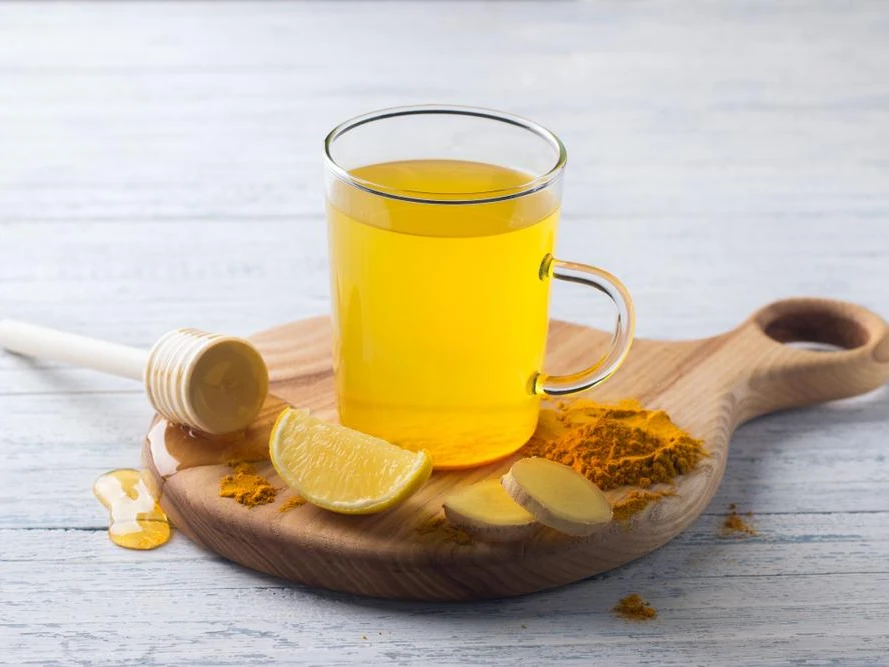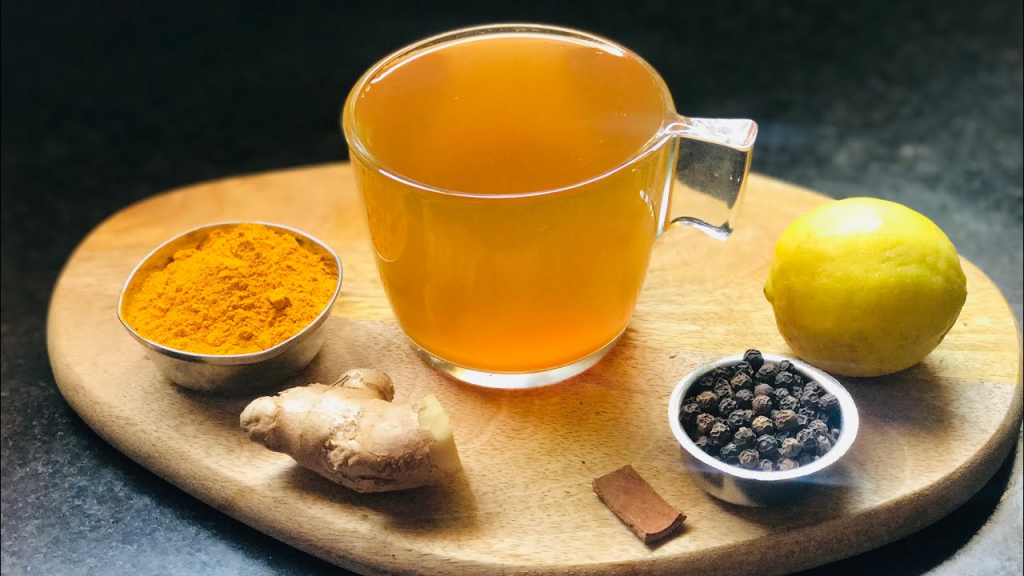More than 422 million people worldwide live with diabetes, and nearly 1.3 billion adults struggle with high blood pressure, according to the World Health Organization. These conditions not only affect daily life but also increase the risk of serious complications such as heart disease and stroke. With numbers rising each year, it’s no surprise that people are searching for natural solutions to complement medical treatments.
One traditional remedy making a comeback is turmeric tea. Known for its golden color and earthy flavor, turmeric has been a cornerstone of Ayurvedic and traditional medicine for centuries. While modern science is still uncovering its potential, many believe turmeric tea offers supportive benefits for blood sugar balance, circulation, and cardiovascular wellness.
In this article, we’ll explore the history of turmeric tea, what science says about its active compounds, and how it may play a role in supporting overall health. You’ll also learn practical tips, recipe variations, and precautions to help you decide whether this “ancient golden drink” deserves a spot in your daily routine.

What Makes Turmeric Tea Special?
Turmeric (Curcuma longa) is a root from the ginger family, commonly used as a spice in Asian cuisine. The bright yellow compound curcumin is responsible for both its color and many of its reported health benefits.
Key Nutrients in Turmeric
- Curcumin: Antioxidant and anti-inflammatory compound studied for multiple health effects.
- Manganese: Supports bone health and metabolism.
- Iron: Helps maintain healthy blood function.
- Potassium: Linked to cardiovascular support.
When brewed into tea, turmeric releases its active compounds, creating a warm, soothing drink that may aid wellness from the inside out.
| Nutrient/Compound | Potential Role in Health |
|---|---|
| Curcumin | Anti-inflammatory, antioxidant support |
| Potassium | Helps regulate blood pressure |
| Iron | Supports healthy circulation |
| Manganese | Aids metabolism and bone strength |

Turmeric Tea and Blood Sugar Support
One of the most talked-about benefits of turmeric tea is its potential role in blood sugar balance.
- Curcumin and insulin sensitivity: Some studies suggest curcumin may improve how the body responds to insulin, potentially supporting more stable blood sugar levels.
- Anti-inflammatory effects: Since chronic inflammation is linked to insulin resistance, turmeric’s natural anti-inflammatory compounds may help reduce risk factors.
- Antioxidant protection: Curcumin’s antioxidant activity may protect pancreatic cells involved in insulin production.
Everyday Insight
In India, many families drink turmeric milk or turmeric tea after meals, believing it aids digestion and prevents post-meal energy crashes. While not a substitute for diabetes treatment, this tradition aligns with current research on curcumin’s potential role in metabolic health.

Turmeric Tea for Healthy Blood Pressure and Circulation
Hypertension and poor circulation are two major health concerns globally. Turmeric tea may provide supportive benefits thanks to its natural compounds.
- Blood vessel relaxation: Some animal studies suggest curcumin can help improve the flexibility of blood vessels.
- Anti-clotting properties: Turmeric may reduce platelet aggregation, supporting smoother blood flow.
- Potassium content: Potassium helps balance sodium in the body, a key factor in managing blood pressure.
Practical Example
A wellness coach shared that her clients who incorporated turmeric tea into their evening routine noticed a calming effect and, over time, improvements in their energy levels linked to better circulation. While this is anecdotal, it reflects how turmeric tea can fit into lifestyle approaches for heart health.

Additional Benefits of Turmeric Tea
Beyond diabetes and blood pressure, turmeric tea has been linked to several other areas of wellness:
- Digestive comfort: Traditionally used to soothe bloating and support gut health.
- Joint health: Its anti-inflammatory properties may help with stiffness and discomfort.
- Immune support: Rich in antioxidants, turmeric tea is often consumed during seasonal changes to strengthen natural defenses.
- Skin wellness: Some women report clearer, healthier skin after making turmeric tea part of their diet.
How to Make Turmeric Tea at Home
Turmeric tea is simple to prepare, and you can tailor it to your taste.
Basic Recipe
- Boil 2 cups of water.
- Add 1 teaspoon of ground turmeric (or 1 inch of fresh turmeric root, grated).
- Simmer for 10 minutes.
- Strain into a cup.
- Add honey or lemon for flavor.

Variations to Try
- With ginger: Adds extra digestive support and a warming kick.
- With black pepper: Piperine in pepper enhances curcumin absorption.
- With milk: Creates a creamier drink, often called “golden milk.”
Precautions and Safety Considerations
While turmeric tea is safe for most people, there are a few important points to consider:
- Not a cure: Turmeric tea should not replace medications for diabetes, high blood pressure, or circulation issues.
- Digestive sensitivity: High doses may cause stomach upset in some individuals.
- Medication interactions: Turmeric can interact with blood thinners and diabetes medications. Consult your doctor before regular use.
- Quality matters: Always choose high-quality turmeric powder or fresh roots to avoid contaminants.

Conclusion
Common Questions, Quick Answers
Can turmeric tea cure diabetes or high blood pressure?
No. It cannot cure these conditions but may support overall health alongside medical treatment.
How often should I drink it?
1–2 cups per day is considered safe for most healthy adults.
Do I need to add black pepper?
Adding a pinch of black pepper can help your body absorb curcumin more effectively.
When’s the best time to drink turmeric tea?
Evenings are ideal, as it promotes relaxation and supports digestion.
Turmeric tea is more than just a trendy drink—it’s a centuries-old tradition now supported by modern interest in natural health. By incorporating it mindfully into your lifestyle, you may enjoy better digestion, antioxidant protection, and supportive benefits for blood sugar and circulation. Remember, this article is for informational purposes only and does not replace professional medical advice.




